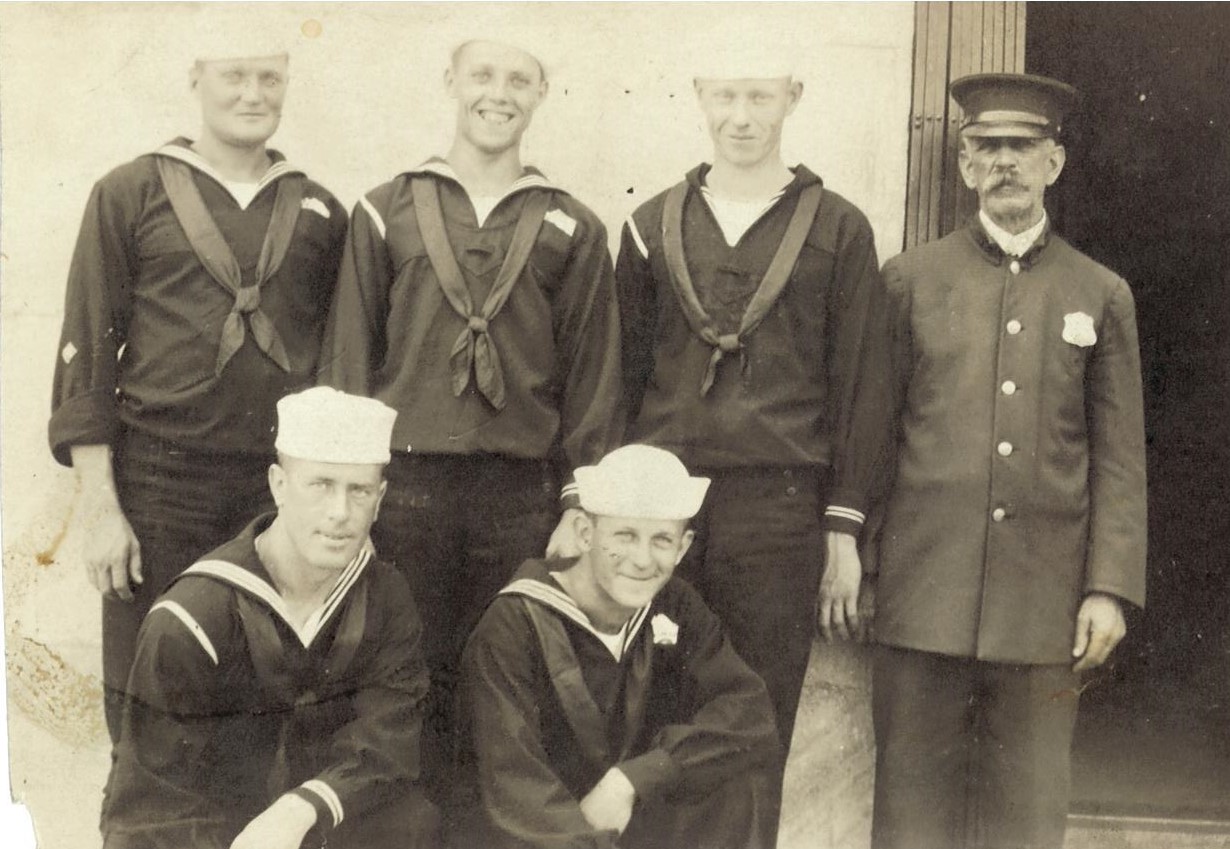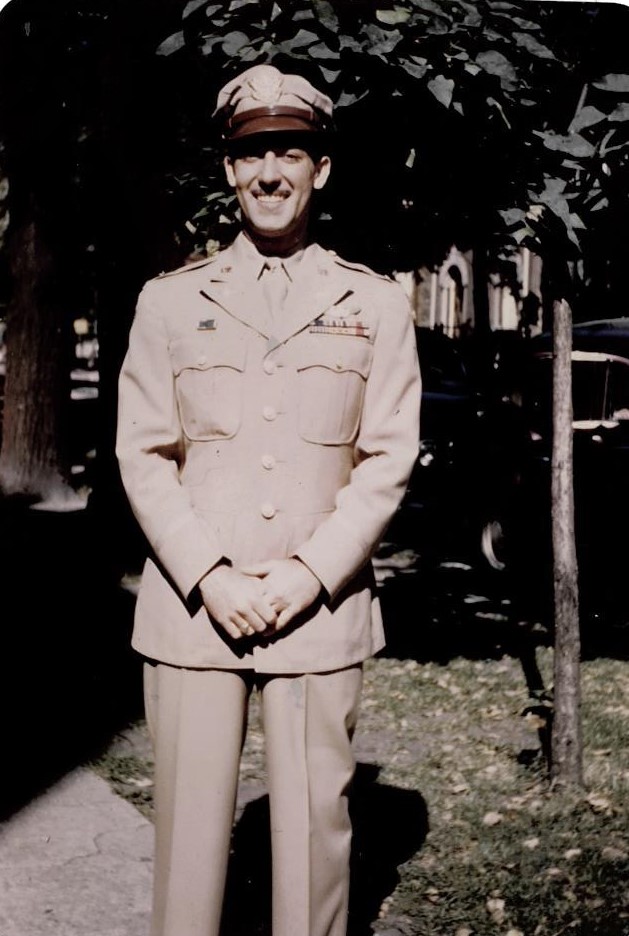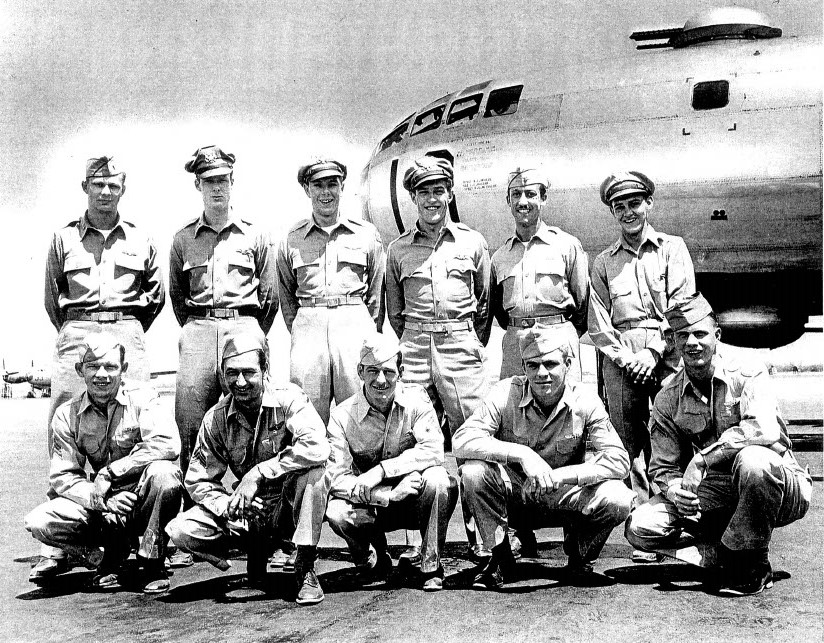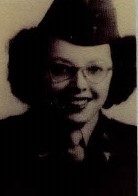Record date:
Alvin Goldstein Transcript.pdf
Alvin Goldstein, Officer, US Army Air Corps
Call it luck or call it resourcefulness, Alvin Goldstein (1923-2018) came out of World War II, intact. Whether he recounts his service as an airman in the US Army Air Corps. 462nd Bombardment Group in the Pacific or talks about his family, his oral history story has a fable-like quality.
Born to immigrant Russian-Jewish parents, he had a colorful childhood growing up in a variety of neighborhoods in the Chicago area. After he graduated from Austin High School, he studied at North Park College, taking a course in trigonometry which turned out to be pivotal.
Recruited by the Heisman Trophy winner, Jay Berwanger, the Army’s draft to the Infantry caught him first in 1944. Basic training at Camp Wolters, Texas, made the athletic Goldstein even stronger. Disturbed however by the inequity that he encountered, he took matters into his own hands and succeeded in joining the Army’s Air Corps.
After training at Shepherd Field, Virginia, Deming, New Mexico, Maryville College in Alcoa, Tennessee, and Victoriaville, California, Goldstein emerged not only as a bombardier but as a radar observer, radar being cutting-edge technology then. Ever practical he always jumped on down-to-earth advice. For example, Goldstein internalized information in a booklet that his father gave him about how to survive one’s test flight on Piper Cub.
“You got the joystick. You've got the pedals. Just turn left, right…. You'll be right back to where you were at.”
He met the crew at Tucson Davis-Monthan Airfield, Arizona, and forged life-long friendships with many of them. After saving the crew’s lives by preventing a crash at Guadalupe Peak some of the crew apologized to him for their initial hidden feelings of antisemitism. The crew picked up their B-29 at Topeka, Kansas and then left Tucson for a flight with many stops, that took them to Guam, the headquarters of the 20th Air Force. As part of the 462nd Bomb Group, he was assigned to Tinian, one of the Mariana Islands. He described his “lucky” mission as well as the Show of Power mission over the USS Missouri. Goldstein is open about relating the emotional toll of being surrounded by death.
After the war, they were sent to Clarkfield Airbase in the Philippines but without an assignment he was bored. After he recovered from a bout of dengue fever, Goldstein makes his way to Manila, or specifically to Nichols Field. Before he knew it, he was commandant of P.O.W. 15 and P.O.W. 16. aided by his assistant, a local Filipino. His parent’s teachings of treating people kindly proved to be a win-win formula. He authorizes the use of a deserted baseball field and procurement equipment for the Japanese prisoners who, in turn, happy had no reason to rebel. During the 1946 Philippines presidential election, Goldstein was courted by the president-elect believing that he had influence over another Chicago Jew, Alderman Jacob Arvey. Indeed, Goldstein was a sought-after dance partner at parties held in Malacañang, the president’s castle.
After about eight or nine months, he returned to Chicago. He and his brother, who also served in World War II, were appreciative of the fact that they were able to save money as paid servicemen. They thus had the means to start an insurance company, which proved to be the first step to greater ventures.
Goldstein met the love of his life, Sheila Lefkowitz, at the Officer’s Club at the Knickerbocker Hotel. She too served in the Mariana Islands, in Guam, as part of the Nurse’s Corps. The two married and raised four children. He attributes the success of their children and all of their descendants to her.
Goldstein is ever grateful to the US military which not only took care of him during the war but provided him with resources and skills to start life as an adult in the civilian world. In his typical generous manner, he shares tips on business and life with the interviewers.



















